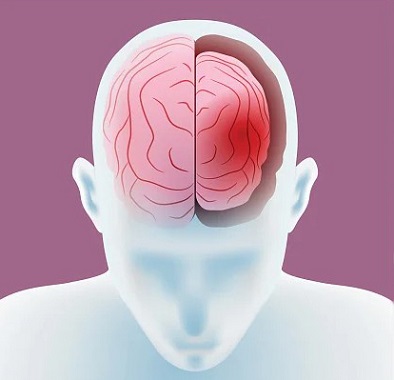Nikhil Prasad Fact checked by:Thailand Medical News Team Jun 12, 2024 1 year, 6 months, 1 week, 2 days, 21 hours, 50 minutes ago
COVID-19 News: A team of researchers from Istanbul University, led by Professor Dr Haşim Gezegen, conducted a groundbreaking study to investigate the long-term effects of COVID-19-induced hyposmia on brain structure and cognitive function. The study that is covered in this
COVID-19 News report, involved 36 COVID-19 patients with hyposmia (h-COV), 21 patients without smell loss (n-COV), and 25 healthy controls (HCs). Participants underwent cognitive tests, neurological exams, and MRI scans to measure changes in their brains.
 COVID-19 Shrinks Your Brain
Key Findings
COVID-19 Shrinks Your Brain
Key Findings
Cognitive Decline Linked to Smell Loss
COVID-19 patients who lost their sense of smell performed significantly worse on cognitive tests compared to healthy controls. Specifically, the Addenbrooke's Cognitive Examination - Revised (ACE-R) showed that these patients had lower scores, especially in language-related tasks. The Sniffin’ Sticks test, which assesses olfactory function, also revealed that hyposmic patients had reduced ability to discriminate and identify smells.
Brain Shrinkage Observed
MRI scans revealed a troubling decrease in the volume of the olfactory bulbs (OB) in hyposmic patients. These are crucial structures in the brain responsible for processing smells. Additionally, there was cortical thinning in the left lateral orbitofrontal cortex, a brain region linked to smell and cognitive functions.
The Science Behind the Shrinkage
The olfactory system, which includes the olfactory bulb and primary olfactory cortex, is essential for processing smells. Damage to this system can disrupt neural pathways, affecting both smell perception and cognitive abilities. The study suggests that COVID-19-related smell loss is tied to central nervous system damage, possibly due to direct viral invasion or inflammation.
Long-Term Cognitive Risks
The cognitive deficits observed in hyposmic patients aren't just short-term issues. The structural changes in the brain indicate potential long-term effects on memory, attention, and executive functions. This aligns with other research showing that olfactory impairment can be an early sign of broader cognitive decline and neurodegeneration.
Broader Implications - Understanding COVID-19’s Neurotropic Nature
The findings highlight that SARS-CoV-2, the virus causing COVID-19, has neurotropic properties - meaning it can invade and affect the nervous system. This underscores the importance of monitoring and supporting COVID-19 survivors, especially those with ongoing smell loss. It also calls for continued research into the virus’s long-term effects on the brain.
The Need for Ongoing Research
While this study provides crucial insights, further research is needed to fully understand the progression and potential reversibility of these brain changes. Longitudinal studies tracking patients over several years will be vital in de
termining the lasting impact of COVID-19 on brain health and cognitive function.
Conclusion
This study reveals that COVID-19’s impact extends far beyond the lungs, with significant implications for brain health. The loss of smell experienced by many COVID-19 patients is linked to brain shrinkage and cognitive decline, highlighting the need for comprehensive post-recovery care and ongoing research. As we continue to learn about the long-term effects of COVID-19, it’s clear that the virus has profound and lasting impacts on the brain.
The study findings were published in the peer reviewed European Journal of Neurology.
https://onlinelibrary.wiley.com/doi/10.1111/ene.16378
For the latest
COVID-19 News, keep on logging to Thailand Medical News.
Read Also:
https://www.thailandmedical.news/news/sars-cov-2-infections-literally-causes-your-brain-cells-to-die-more-emerging-cases-of-post-covid-acute-necrotizing-encephalopathy-in-young-adults
https://www.thailandmedical.news/news/great-news-university-of-oxford-study-shows-that-even-mild-sars-cov-2-infections-can-result-in-brain-changes-and-cognitive-decline
https://www.thailandmedical.news/news/great-news-university-of-oxford-study-shows-that-even-mild-sars-cov-2-infections-can-result-in-brain-changes-and-cognitive-decline
